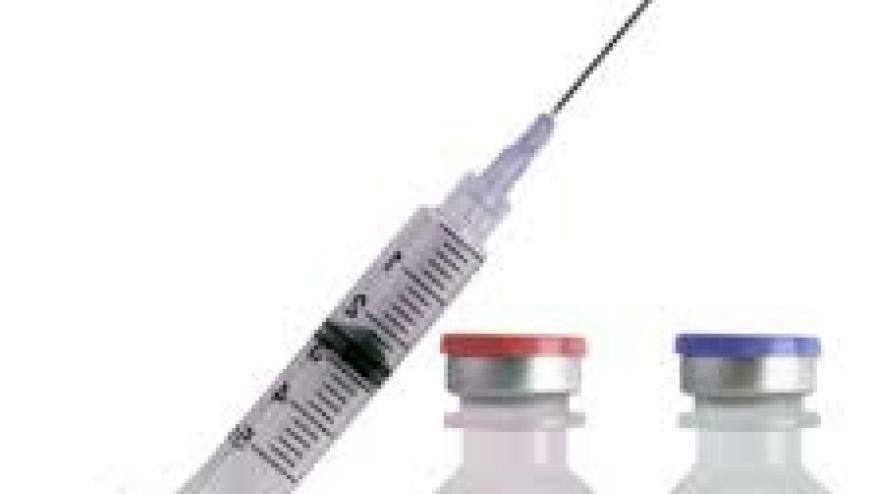Novel Anti-TNF Shines in Rheumatoid Arthritis Trial Save

A new way of inhibiting tumor necrosis factor (TNF) for treating rheumatoid arthritis showed strong results in a phase II/III clinical trial, researchers said.
About 75% to 80% of patients receiving an investigational agent called ozoralizumab achieved 20% reductions in symptoms by American College of Rheumatology criteria (ACR20), compared with 37% of a placebo group, according to Tsutomu Takeuchi, MD, PhD, of Keio University School of Medicine in Tokyo, and colleagues.
Similarly, 50% to 55% of those receiving the novel drug had ACR50 responses (50% symptom reduction) versus 12% of placebo recipients, and ACR70 was achieved by 28% to 34% of the ozoralizumab group versus 3% of the placebo group, Takeuchi and colleagues reported in Arthritis & Rheumatology.
For some 3 decades now, TNF inhibitors have been the initial go-to treatment for rheumatoid arthritis patients with inadequate responses to methotrexate or other conventional treatments. Not everyone responds successfully to or can tolerate TNF inhibitors, and drug developers' attention in recent years has turned to other targets such as certain interleukin species and the JAK family of kinase enzymes. It's been more than a dozen years since a new TNF inhibitor was approved for rheumatoid arthritis.
But some researchers saw untapped potential for TNF as a drug target. Ozoralizumab was engineered as a so-called nanobody that would accumulate in inflamed tissues, presumably boosting its effects where disease activity is centered. As Takeuchi and colleagues explained, the molecule consists of two different antibodies targeting TNF plus a third binding site for human serum albumin, the latter meant to prolong the drug's lifetime in circulation.
The two antibodies are special, too. They are a type derived from llamas and related animals that include only the heavy chain. In vitro studies have shown that they bind to targets such as TNF with very high potency. As reported in 2017 by ozoralizumab's original developer, the Belgian company Ablynx, this particular agent binds to TNF's trimeric form, "blocking two of the three receptor binding sites in the cytokine." (Ablynx, a Sanofi unit, has partnered with the Japanese firm Taisho Pharmaceutical Co. to develop the drug commercially.)
In the new trial, called OHZORA and sponsored by Taisho, 381 rheumatoid arthritis patients not responding well to methotrexate were randomized 2:2:1 to one of two ozoralizumab doses (30 or 80 mg) or placebo, all given by injection every 4 weeks for 24 weeks while continuing on methotrexate. Participant characteristics were typical of those considered candidates for anti-TNF therapy: about three-quarters were women, mean age was 55, and disease duration averaged 7-8 years.
Mean scores on the 28-joint Disease Activity Scale (DAS28) at baseline were 5.1 (with C-reactive protein [CRP] level included) and 5.8 (with erythrocyte sedimentation rate [ESR] included). Participants had an average of 16 tender joints and 13 swollen joints, out of 68 and 66, respectively. Mean total Sharp score, an objective radiological measure of joint damage, was 27.5.
Safety findings during the trial were standard for anti-TNF therapy. Serious adverse events were rare -- 11 across the 381 participants -- and evenly distributed among the three treatment groups. However, one patient in the 80-mg group died from disseminated tuberculosis and this was attributed to the drug treatment. (Currently approved TNF inhibitors carry a boxed warning about increased risk for tuberculosis and call for testing before and during treatment.) Also, the researchers noted an increased rate of herpes zoster attacks with ozoralizumab, with five total versus none in the placebo group.
ACR20 was the trial's primary efficacy endpoint and this was met easily. Secondary endpoints also favored the active drug. For example, mean DAS28 scores fell by about 2.5 points during ozoralizumab treatment, versus a decline of about 1.3 points in the placebo group. Biomarkers of inflammation including CRP and ESR also fell much more with the drug than placebo.
Additionally, a dose-dependent effect was seen for changes in Sharp scores. Ozoralizumab did not completely stop disease progression, but it did slow it relative to placebo. For total Sharp score, the average increased by 0.4 points with the highest dose, 0.6 points with the lower dose, and 0.8 points with placebo. The scoring system's two components, joint space narrowing and erosion, each followed the same pattern.
A 3-year, open-label extension study is now underway. Taisho has already filed for marketing approval in Japan. It's unclear whether applications in the U.S. and other countries are in the works.
Other TNF inhibitors first approved for rheumatoid arthritis have gone on to gain approvals for other autoimmune arthritis conditions and inflammatory bowel disease, and it would be no surprise if the same happened with ozoralizumab. However, no trials in such diseases are currently listed on ClinicalTrials.gov and neither Taisho nor Sanofi have indicated plans for them.









If you are a health practitioner, you may Login/Register to comment.
Due to the nature of these comment forums, only health practitioners are allowed to comment at this time.